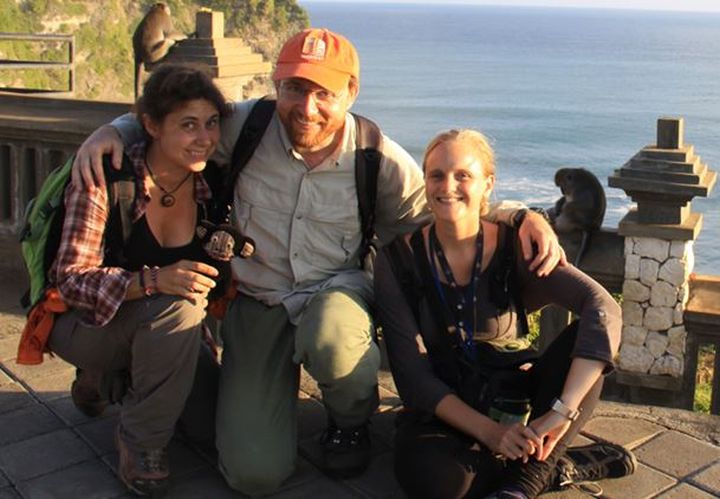In some parts of the world, it’s a more common crime than you may think: monkeys stealing things from tourists and then using the items to barter for food.

It’s a racket that has caught the attention of University of Lethbridge researcher Dr. Jean-Baptiste Leca.
Leca and his team conducted a study examining habits of the Balinese long-tailed macaque monkeys, and the results show their sneaky thievery is more than just a coincidence, it’s a phenomenon.
“It takes boldness during the robbing part, because it requires physical contact with a human and not all monkeys are willing to do that,” Leca said.
“Then it takes patience and self-control during the bartering part. With a very skilled monkey, it works.”
The team travelled to Uluwatu Temple in Bali to conduct its research along with Dr. I Nengah Wandia of Udayana University.
Leca, an assistant professor in the university’s department of psychology, explains how tourists have been at the mercy of the macaque monkeys for over two decades, proving the behaviour is trans-generational and likely cultural.
“We’re not exactly sure how the behaviour originated,” Leca said. “It could have been some human influence but the way it has spread is most likely cultural.
“Some monkeys seem to go with quantity, only dropped the object for several food items, while others go for quality and physically rejected – with an arm movement – a series of food items before they get the one they are interested in acquiring.”
The monkey thievery can often be quite bold. The macaques will take a set of sunglasses off the face of a tourist and then wait for the negotiation to begin.
Leca explains that the most skilled monkeys will get what they want, drop their stolen token and be on their way. Both the object and the human victim are left unharmed.
“In this population, the monkeys are not violent or aggressive towards humans,” Leca said. “They interact physically, but you’d be surprised how skilled they are at snatching things like eyeglasses with not even a scratch.”
Leca and his University of Lethbridge research team, intend to use their findings to learn about the difference in personality traits between individual macaques, how the system is passed on culturally, and ultimately, whether the pattern could reveal information about behavioural economics.
“It’s only the beginning of this work so we want to be very cautious,” Leca said. “But ultimately we’d like our research to have implications for behavioural economics.”


Comments